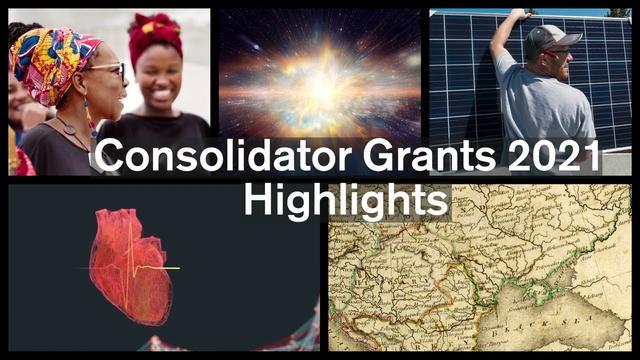313 new ERC Consolidator Grants to tackle big scientific questions
Can we transition to renewable energy sources faster by creating social tipping points? What can we learn from astrophysical shocks? How can computer software be made secure? What did diplomacy look like in early modern south-eastern Europe? And how can the heart find the rhythm to its beat? 313 winners of the European Research Council’s latest round of Consolidator Grants, backed with some €632 million, will tackle these and other major questions across all scientific disciplines.
The funding will support mid-career researchers and will help them consolidate their teams and conduct pioneering research on topics and with methods of their choosing. Part of the EU’s Horizon Europe programme, this new round of grants will create an estimated 1,900 jobs for postdoctoral fellows, PhD students and other staff at 189 host institutions.
Mariya Gabriel, European Commissioner for Innovation, Research, Culture, Education and Youth, said: “The results of this European Research Council grant competition are a testament to the impressive excellence of European research. I am proud that the EU can help top researchers thrive in Europe. Finding new solutions in the fields of energy, health or digital technologies is only possible if we can attract and keep scientific talent. Congratulations to all the grantees!”
President of the ERC Prof. Maria Leptin commented: ”Even in times of crisis and conflict and suffering, it is our duty to keep science on track and give our brightest minds free reign to explore their ideas. We do not know today how their work might revolutionise tomorrow - we do know that they will open up new horizons, satisfy our curiosity and most likely help us prepare for unpredictable future challenges. So, I am thrilled to see a new group of ERC grant winners funded for their scientific journey. I wish them the best of luck on their way to push the frontiers of our knowledge!”
Research projects in 24 countries

The future grantees will carry out their projects at universities and research centres across 24 EU Member States and associated countries, with Germany (61 grants), UK (41) and France (29) as top locations. Scientists and scholars from around the world are eligible to apply to ERC calls. This time, the winners represent 42 nationalities, with Germans (58 researchers), Italians (30) and French (26) leading the ranking in absolute numbers. Five researchers from the US and one researcher from New Zealand intend to move back to Europe with their grants.
In this latest call, 2,652 applicants submitted proposals and 12% of them will receive the funding. Male and female applicants were equally successful in winning the grants.
• Consolidator Grants (2021 call) – facts and figures• Examples of the research selected for funding
List of researchers selected for funding
• All grants• Grants in physical sciences and engineering• Grants in life sciences• Grants in social sciences and humanities
The statistics and final list of successful candidates are provisional. After the negotiations (exploratory talks) were concluded, Switzerland is considered a country non-associated to Horizon Europe. As a result, host institutions in Switzerland are not eligible for funding. Exceptionally for this call and the Starting Grant 2021 call, as they were already closed before the end of the negotiations between the EU and Switzerland, successful applicants in Swiss host institutions can still be funded provided they move to a host institution in an eligible country. In addition, successful applicants based in a country in the process of associating to Horizon Europe will be treated as based in an associated country only if the relevant Horizon Europe association agreement applies by the time of the signature of the grant agreement.
About the ERC
The ERC, set up by the European Union in 2007, is the premier European funding organisation for excellent frontier research. It funds creative researchers of any nationality and age, to run projects based across Europe. The ERC offers four core grant schemes: Starting Grants, Consolidator Grants, Advanced Grants and Synergy Grants. With its additional Proof of Concept Grant scheme, the ERC helps grantees to bridge the gap between their pioneering research and early phases of its commercialisation. The ERC is led by an independent governing body, the Scientific Council. Since 1 November 2021, Maria Leptin is the President of the ERC. The overall ERC budget from 2021 to 2027 is more than €16 billion, as part of the Horizon Europe programme, under the responsibility of the European Commissioner for Innovation, Research, Culture, Education and Youth, Mariya Gabriel.








